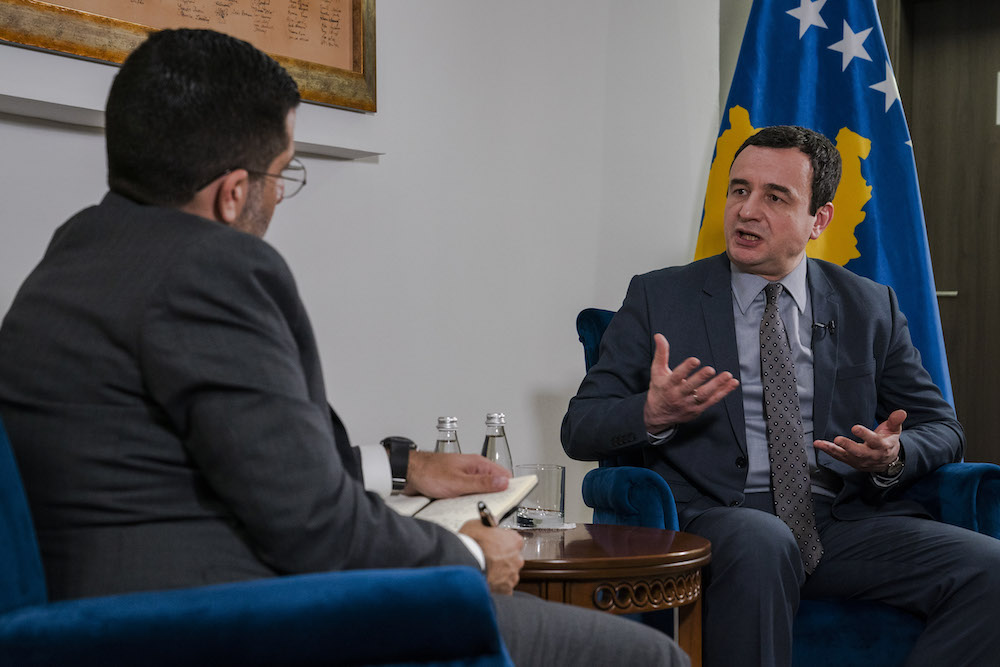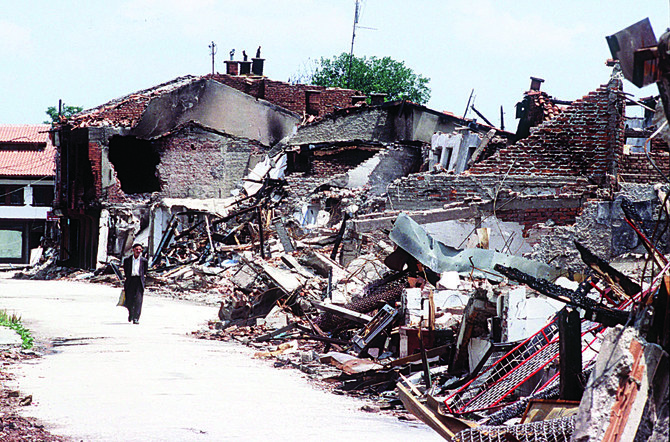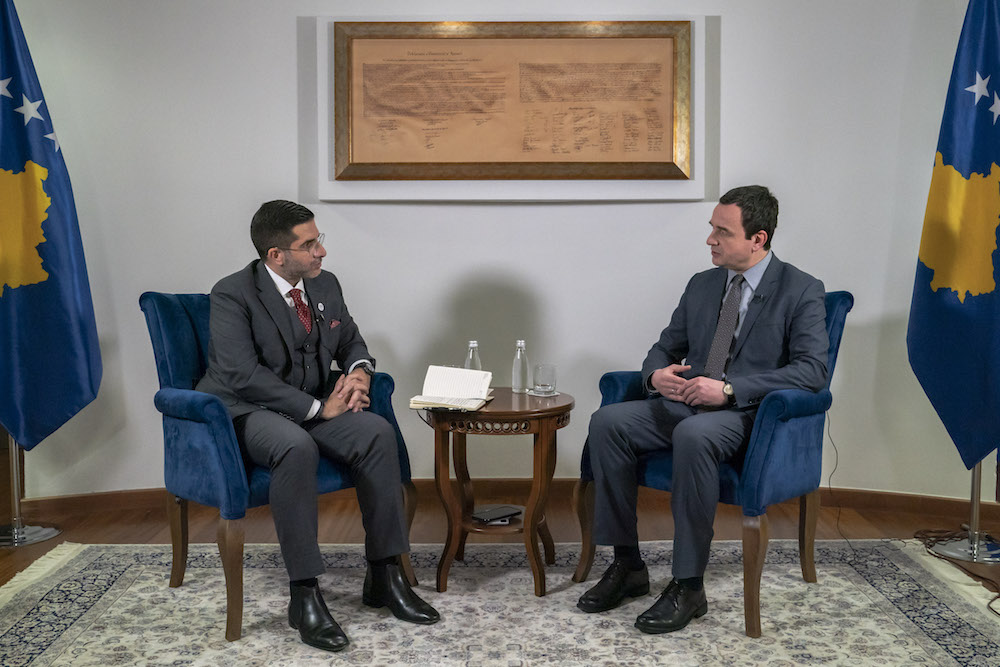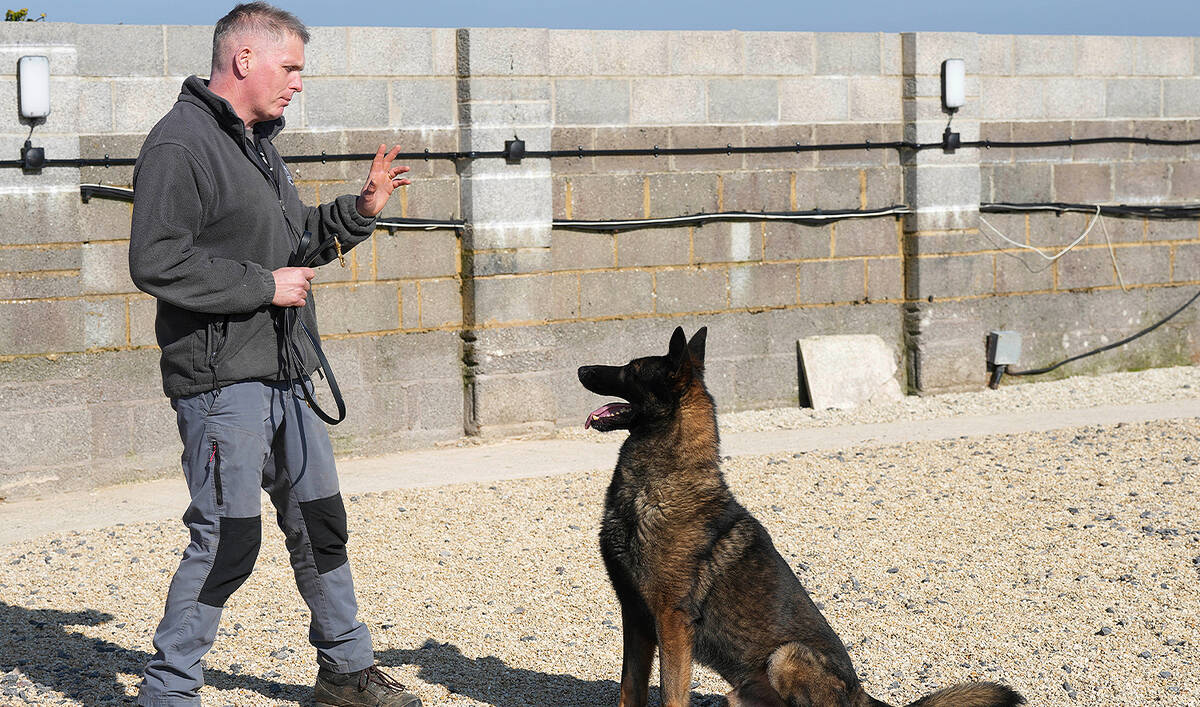PRISTINA: Fourteen years ago, the Republic of Kosovo declared its independence and became the world’s newest country. Backed by its main ally, the US, and protected by a UN-mandated NATO presence, Kosovo enters its 15th year of independence facing several challenges — and some clear and present dangers, too.
Despite the backing of some of the world’s biggest and most influential states, Kosovo is still not part of the UN and is recognized by fewer than 100 of the 193 UN member states. Even though it is located in the heart of Europe, and enjoys huge support from the EU, it is still not a member of the union and Kosovars do not enjoy visa-free travel across the continent.
The main cause of most of Kosovo’s pains is the deep-rooted historic rift with its northern neighbor, Serbia. Both countries were part of the former Yugoslavia and, following its break-up, endured a bloody decade of fighting in the Balkans during the 1990s.
Serbia refuses to recognize Kosovo or apologize for the atrocities of the 1998-1999 Kosovo War, which only ended after NATO intervened. The current standoff and mutual non-recognition prevent both countries from joining the EU, five members of which still do not officially recognize Kosovo.
Previous Kosovar leaders attempted to engage in dialogue with Serbia. However, since assuming office in March 2021, Prime Minister Albin Kurti has signaled repeatedly that talks with Belgrade are not a priority.
Kosovo Factfile
* ‘Kosovo’ means ‘field of blackbirds’ in Serbian.
* Has a population of 1.87 million.
* Declared independence from Serbia on Feb. 17, 2008.
* More than 40% of the population is under 25 years old.
* Occupies an area of 10, 887 square kilometers.
* Main languages are Albanian and Serbian.
* Majority of the population is Muslim.
“We did not want to neglect dialogue with Serbia but I cannot have it as priority number one,” he told Arab News during an exclusive interview at his office in Pristina. “I said, from the outset of this government, that jobs, justice and the COVID-19 pandemic are our top three priorities. Number four could be the dialogue.
“This dialogue, which we are approaching in a constructive and creative manner with different proposals, is a dialogue about the status of relations between Kosovo and Serbia. Kosovo and Serbia do not recognize each other, so the solution is mutual recognition.”
There are other elements that further complicate the possibility of a normalization of relations between the countries and their mutual accession to the EU.
READ MORE
As Kosovo celebrates its 14th independence day, Europe’s newest country — and one with the continent’s youngest population — has much to be proud of. Read more here.
To start with, there are the dark shadows of the past. A few months after he was elected prime minister, Kurti spoke about the possibility of reviving plans to sue Serbia for genocide in an international court, and rejected some Western calls for Kosovo’s minority Serb population to be allowed to vote in a Serbian referendum that Pristina considers “unconstitutional.”
Another issue is that officials in Kosovo accuse their Serbian counterparts of being much more interested in being in the orbit of Russia rather than Europe.
“Serbia has close cultural, historical and military links with Moscow,” said Kurti. Asked how this close relationship between Belgrade and Moscow might affect his country if war breaks out between Russia and Ukraine, Kurti said it might push Serbia to become “more aggressive.” But while he said that Pristina is “following the situation very carefully,” he added: “We are not afraid.”
Nevertheless, some critics of recent US foreign-policy decisions believe Kosovo has a number of reasons to be concerned, given that in recent years neither Washington nor NATO have proven to be very good friends to many of their traditional allies in times of need.
I think the people of Kosovo, but also people in the Balkans and in Europe, should know more about the reforms and the progress in Saudi Arabia. We want to strengthen cooperation with the Kingdom.
Prime Minister Albin Kurti
Former US President Barack Obama’s so-called “red lines” did little to deter Russia from seizing control of Crimea in 2014. More recently, as part of the Biden administration’s pivot toward ending “forever wars,” the world watched the painful scenes at Kabul Airport as many Afghans desperately trying to flee the country after Washington effectively handed the country back to the Taliban, 20 years after it waged a war to bring democracy to the country and end the rule of the same extremist group.
However, Kurti strongly believes that the NATO presence in Kosovo is there to stay but that if push comes to shove, Kosovars are capable of defending themselves.
“I think that Kosovo has great people with great will and courage, on one hand, and on the other hand, I think that our defense and security forces and NATO, especially the US, are here to stay,” he said.
“And we are certain that we will be victorious in any kind of future crisis that might occur, but which we do not want to have.”
Kurti is so confident of NATO’s commitment to his country that he believes it is likely Kosovo will join the alliance as a full member much sooner than it is granted EU membership status.
“I believe that this is the case for two reasons,” he said. “Firstly, in the EU we have five non-recognizers out of 27, whereas in NATO we have four non-recognizers out of 30. So, one non-recognizer less in NATO than in EU.
“But in addition, the criteria and standards that you have to fulfill to join NATO are not as complex as they are for joining the EU. So, it is realistic to expect that we will first join NATO and then EU.”
In addition, NATO does not require its members to be member states of the UN or the EU, so provided that Pristina can convince Spain, Greece, Romania and Slovakia to recognize it, the prime minister’s vision might become a reality in the next few years, observers argue.
Relations with the Muslim world
The members of the EU that do not recognize Kosovo might argue that they have taken this position to avoid encouraging separatist movements within their countries. What is perhaps more remarkable is that fact that as things stands, only slightly over half of the members of Organization of Islamic Cooperation recognize Kosovo, which is a Muslim-majority country. Leading the way among the Gulf recognizers are moderate Muslim countries, such as regional powerhouse Saudi Arabia and the UAE.
How does Kurti feel about the fact that so many fellow Muslim states do not recognize his country, particularly a major Islamic nation such as Iran?
“We think that it’s a big mistake that some of the countries with Muslim-majority populations are not recognizing Kosovo,” he said. “I think that they have been misinformed by Serbia. And some of them do this because they keep some close links with the Russian Federation.
“However, I would urge all the countries in the world, for the sake of long-term peace, sustainable security and recognizing the rights of people to freedom and self-determination, to recognize the independence of Kosovo.
“In a way, those who do not recognize the independence of Kosovo, with or without intention, they fall prey to supporting Serbia from the time of the militias that committed genocide in Kosovo.”
A particularly paradoxical twist in this tale is the non-recognition of Kosovo by the Palestinian Authority. One might think that the official representatives of a people who have for seven decades protested and fought against the illegal occupation by Israel would be among the first to stand in solidarity with Kosovo.
Yet the PA does not recognize Kosovo and its former leader, Yasser Arafat, was criticized for his close ties with former Serbian leader Slobodan Milosevic at the turn of the century.
Meanwhile, although Israel and Kosovo only formally recognized each other a little over a year ago Tel Aviv’s policy towards Kosovo has long been non-aggressive. Even before the formal recognition, which had been lobbied for by the administration of former US President Donald Trump, Israel supported Kosovo’s campaigns to gain membership of the International Monetary Fund and the World Bank.

Kurti, seen here in his Pristina office being interviewed by Arab News Editor-in-Chief Faisal J. Abbas, said Houthi attacks on Saudi Arabia and the UAE are ‘terrorism actions.’ (AN Photo/Ziad Alarfaj)
Even so, Kosovo’s announcement last year of its decision to recognize Jerusalem as the capital of Israel shocked many Muslim countries, given the sensitivity of the issue in the Muslim world.
All of this begs the question of what the current stance in Pristina is on the Palestinian cause and the PA.
“I think that, just as we know how much the Palestinian people have suffered, they should not neglect the suffering of the Albanians in Kosovo, who survived Serbia’s genocide,” said Kurti.
He denies, however, that the Trump-era decision to recognize Jerusalem as Israel’s capital was in any way a form of retaliation against the official Palestinian position of non-recognition of Kosovo.
“That has nothing to do with our stance toward the Palestinian people and their cause,” he said. “We want to have good relations with Palestine, with the Palestinian Authority and with Palestinians as people.”
Last year, Kosovo joined several Arab and Muslim states in designating the Iran-backed Lebanese militia Hezbollah as a terrorist group. When asked about the background to that decision, Kurti said it is “not difficult to recognize terrorists and violent extremists.”
He added: “In line with our beliefs and values, on which we are building our country and on which we are orienting future generations, we made such a decision in Kosovo, and we are part of the global coalition against violent extremism and terrorists.
“We also condemned all the attacks and activities of Hezbollah, and also of Daesh.”
Kurti also said he was appalled by the recent attack by the Houthis in Yemen on Abu Dhabi airport and their ongoing strikes against civilian targets in Saudi Arabia, adding that such acts can never be tolerated.
Does this mean that he agrees that the Houthis should be designated as a terrorist group?
“Yes, I think all these attacks on civilians are terrorist actions,” he said.
Kosovo, as well as Bosnia, has had its own issues with home-grown terror; a number of its citizens lest the country to join Daesh a few years ago. Kurti said there is no place in his country for tolerance of extremist ideology.
“There were a couple of hundred people from Kosovo who unfortunately joined these absolute wars,” he said. “Some of them never came back and for those who did come back, we have done some rehabilitation programs. Some are also serving sentences in prison.
“There had been some manipulation of certain individuals. I can imagine that was due to their lack of educational background, and perhaps unemployment and social misery, and we have to have a certain sensitivity toward the situation. However, this will never stop us from harshly condemning violent extremism.”
‘Kurtinomics’ and Saudi Vision 2030
At the start of our interview, Kurti congratulated the Saudi leadership and people on the occasion of the newly announced annual “Founding Day,” which will be celebrated in the Kingdom on Feb. 22 each year. Throughout our discussion, he appeared up to speed on the most recent developments in Saudi Arabia.
“I think the people of Kosovo, but also people in the Balkans and in Europe, should know more about the reforms and the progress in Saudi Arabia,” he said. “We want to strengthen cooperation with the Kingdom. It’s a very rich country, both in its culture and history, but likewise in its natural resources and economic development.”
The reforms Kurti referred to are those that are taking place under Crown Prince Mohammad bin Salman’s Vision 2030 plan. It includes the diversification of the economy to reduce its dependence on oil; the creation of jobs for Saudi youths, who form the majority of the population; the introduction of previously unimaginable social freedoms and religious reforms; and a relentless crackdown on corruption.
Meanwhile, Kurti and his party triumphed at the election in Kosovo last year based on a “jobs and justice” campaign that focused on the creation of opportunities for young people and women, and a promise to tackle corruption.
It is not enough not to be corrupted; you should also be incorruptible. And I think that our government is a cabinet of ministers who are well-educated, good professionals — people who do not want to get rich from politics.
Prime Minister Albin Kurti
He sees the similarities in the recent developments in the two countries and an opportunity for them to enhance cooperation. To this end, he invited Riyadh to seize the opportunities and invest heavily in the emerging environment in Kosovo.
“With our government we are fighting corruption,” he said. “There is no tolerance for corruption. And we are also growing our economy. For example, last year we registered two-thirds higher exports than the year before. Budget revenues increased by one third.
“Likewise, business turnover increased, while foreign direct investment increased by more than 50 percent. These figures show that Kosovo is progressing — and the best way for more progress is to invest in the already existing progress.”
But how exactly does his brand of “Kurtinomics” work? He said his reforms are all about giving people hope and a reason to believe in them.
READ MORE
Kosovo’s Prime Minister Albin Kurti condemned the continuing series of Houthi attacks on civilian targets in Saudi Arabia, and more recently the UAE, agreeing that such assaults reveal the Houthis to be a terrorist group. Read more here.
“When people are hopeful, they would rather spend than save in our economy if it is growing,” said Kurti. “Because when you expect rainy days in the future, you’d rather save than spend. Then when people see the government is not corrupt, they are more ready to pay taxes and other contributions. That’s why budget revenues in Kosovo, tax revenues, increased by a third without changing fiscal policy.
“And the last thing is that tax administration started to have greater discipline than before. Fighting corruption and crime helps not only the common values of the people but also the health of the economy. On the other hand, our diaspora, which is huge and especially concentrated in German-speaking Europe, sent even more remittances back home than before.
“We have also established a commercial court and in this way we want to create a good environment for business. Kosovo has the euro as a currency and a very young population; the average age is 30 years, even though we are an ancient people. We are located at the heart of the Balkans, close to European markets. And at the same time, Kosovo is a country that never forgets its friends and wants to have good relations with all peace-loving nations in the world.”
Regarding the fight against corruption, Kurti admitted his government has a mountain to climb. “Corruption in Kosovo was high in the past and has not been eradicated altogether,” he said. “But it was quite concentrated at the top, so there was no trickle-down effect. Corruption was concentrated at the top and now we stopped it, precisely, at the top, with the change of government through democratic elections. This is the first point.
“The second point is that it is not enough not to be corrupted; you should also be incorruptible. And I think that our government is a cabinet of ministers who are well-educated, good professionals — people who do not want to get rich from politics.
“We say to all our friends and activists: Whoever likes to get very rich, try your luck and skills in the private sector. In public service of state institutions, you are supposed to serve. So, serving is our vocation, to the best of our abilities and knowledge.”
Looking to the future and the opportunities that lie ahead for Kosovo, Kurti highlights the potential of the information and communications technology sector, wood and metal processing, agriculture and renewable energy. He added that in his role as prime minister he looks forward to actively engaging in promoting these sectors.





























